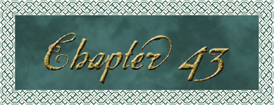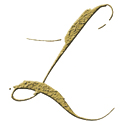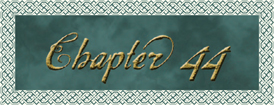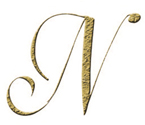
 ANGDON HURRIED to keep pace with Warren Bellamy’s brisk footsteps as they moved without a word down the long tunnel. So far, the Architect of the Capitol appeared far more intent on putting distance between Sato and this stone pyramid than he did on explaining to Langdon what was going on. Langdon had a growing apprehension that there was far more going on than he could imagine.
ANGDON HURRIED to keep pace with Warren Bellamy’s brisk footsteps as they moved without a word down the long tunnel. So far, the Architect of the Capitol appeared far more intent on putting distance between Sato and this stone pyramid than he did on explaining to Langdon what was going on. Langdon had a growing apprehension that there was far more going on than he could imagine.
The CIA? The Architect of the Capitol? Two Thirty-third-degree Masons?
The shrill sound of Langdon’s cell phone cut the air. He pulled his phone from his jacket. Uncertain, he answered. “Hello?”
The voice that spoke was an eerie, familiar whisper. “Professor, I hear you had unexpected company.”
Langdon felt an icy chill. “Where the hell is Peter?!” he demanded, his words reverberating in the enclosed tunnel. Beside him, Warren Bellamy glanced over, looking concerned and motioning for Langdon to keep walking.
“Don’t worry,” the voice said. “As I told you, Peter is somewhere safe.”
“You cut off his hand, for God’s sake! He needs a doctor!”
“He needs a priest,” the man replied. “But you can save him. If you do as I command, Peter will live. I give you my word.”
“The word of a madman means nothing to me.”
“Madman? Professor, surely you appreciate the reverence with which I have adhered to the ancient protocols tonight. The Hand of the Mysteries guided you to a portal—the pyramid that promises to unveil ancient wisdom. I know you now possess it.”
“You think this is the Masonic Pyramid?” Langdon demanded. “It’s a chunk of rock.”
There was silence on the other end of the line. “Mr. Langdon, you’re too smart to play dumb. You know very well what you’ve uncovered tonight. A stone pyramid … hidden at the core of Washington, D.C …. by a powerful Mason?”
“You’re chasing a myth! Whatever Peter told you, he told you in fear. The Legend of the Masonic Pyramid is fiction. The Masons never built any pyramid to protect secret wisdom. And even if they did, this pyramid is far too small to be what you think it is.”
The man chuckled. “I see Peter has told you very little. Nonetheless, Mr. Langdon, whether or not you choose to accept what it is you now possess, you will do as I say. I am well aware that the pyramid you are carrying has an encrypted engraving. You will decipher that engraving for me. Then, and only then, will I return Peter Solomon to you.”
“Whatever you believe this engraving reveals,” Langdon said, “it won’t be the Ancient Mysteries.”
“Of course not,” he replied. “The mysteries are far too vast to be written on the side of a little stone pyramid.”
The response caught Langdon off guard. “But if this engraving is not the Ancient Mysteries, then this pyramid is not the Masonic Pyramid. Legend clearly states the Masonic Pyramid was constructed to protect the Ancient Mysteries.”
The man’s tone was condescending now. “Mr. Langdon, the Masonic Pyramid was constructed to preserve the Ancient Mysteries, but with a twist you’ve apparently not yet grasped. Did Peter never tell you? The power of the Masonic Pyramid is not that it reveals the mysteries themselves … but rather that it reveals the secret location where the mysteries are buried.”
Langdon did a double take.
“Decipher the engraving,” the voice continued, “and it will tell you the hiding place of mankind’s greatest treasure.” He laughed. “Peter did not entrust you with the treasure itself, Professor.”
Langdon came to an abrupt halt in the tunnel. “Hold on. You’re saying this pyramid is … a map?”
Bellamy jolted to a stop now, too, his expression one of shock and alarm. Clearly, the caller had just hit a raw nerve. The pyramid is a map.
“This map,” the voice whispered, “or pyramid, or portal, or whatever you choose to call it … was created long ago to ensure the hiding place of the Ancient Mysteries would never be forgotten … that it would never be lost to history.”
“A grid of sixteen symbols doesn’t look much like a map.”
“Appearances can be deceiving, Professor. But regardless, you alone have the power to read that inscription.”
“You’re wrong,” Langdon fired back, picturing the simplistic cipher. “Anyone could decipher this engraving. It’s not very sophisticated.”
“I suspect there is more to the pyramid than meets the eye. Regardless, you alone possess the capstone.”
Langdon pictured the little capstone in his bag. Order from chaos? He didn’t know what to believe anymore, but the stone pyramid in his bag seemed to be getting heavier with every passing moment.
Mal’akh pressed the cell phone to his ear, enjoying the sound of Langdon’s anxious breathing on the other end. “Right now, I have business to attend to, Professor, and so do you. Call me as soon as you have deciphered the map. We will go together to the hiding place and make our trade. Peter’s life … for all the wisdom of the ages.”
“I will do nothing,” Langdon declared. “Especially not without proof Peter is alive.”
“I suggest you not test me. You are a very small cog in a vast machine. If you disobey me, or attempt to find me, Peter will die. This I swear.”
“For all I know, Peter is already dead.”
“He is very much alive, Professor, but he desperately needs your help.”
“What are you really looking for?” Langdon shouted into the phone.
Mal’akh paused before answering. “Many people have pursued the Ancient Mysteries and debated their power. Tonight, I will prove the mysteries are real.”
Langdon was silent.
“I suggest you get to work on the map immediately,” Mal’akh said. “I need this information today.”
“Today?! It’s already after nine o’clock!”
“Exactly. Tempus fugit.”

 EW YORK editor Jonas Faukman was just turning off the lights in his Manhattan office when his phone rang. He had no intention of picking up at this hour—that is, until he glimpsed the caller-ID display. This ought to be good, he thought, reaching for the receiver.
EW YORK editor Jonas Faukman was just turning off the lights in his Manhattan office when his phone rang. He had no intention of picking up at this hour—that is, until he glimpsed the caller-ID display. This ought to be good, he thought, reaching for the receiver.
“Do we still publish you?” Faukman asked, half serious.
“Jonas!” Robert Langdon’s voice sounded anxious. “Thank God you’re there. I need your help.”
Faukman’s spirits lifted. “You’ve got pages for me to edit, Robert?” Finally?
“No, I need information. Last year, I connected you with a scientist named Katherine Solomon, the sister of Peter Solomon?”
Faukman frowned. No pages.
“She was looking for a publisher for a book on Noetic Science? Do you remember her?”
Faukman rolled his eyes. “Sure. I remember. And thanks a million for that introduction. Not only did she refuse to let me read the results of her research, she didn’t want to publish anything until some magical date in the future.”
“Jonas, listen to me, I don’t have time. I need Katherine’s phone number. Right now. Do you have it?”
“I’ve got to warn you … you’re acting a little desperate. She’s great looking, but you’re not going to impress her by—”
“This is no joke, Jonas, I need her number now.”
“All right … hold on.” Faukman and Langdon had been close friends for enough years that Faukman knew when Langdon was serious. Jonas typed the name Katherine Solomon into a search window and began scanning the company’s e-mail server.
“I’m looking now,” Faukman said. “And for what it’s worth, when you call her, you may not want to call from the Harvard Pool. It sounds like you’re in an asylum.”
“I’m not at the pool. I’m in a tunnel under the U.S. Capitol.”
Faukman sensed from Langdon’s voice that he was not joking. What is it with this guy? “Robert, why can’t you just stay home and write?” His computer pinged. “Okay, hold on … I got it.” He moused through the old e-mail thread. “It looks like all I have is her cell.”
“I’ll take it.”
Faukman gave him the number.
“Thanks, Jonas,” Langdon said, sounding grateful. “I owe you one.”
“You owe me a manuscript, Robert. Do you have any idea how long—”
The line went dead.
Faukman stared at the receiver and shook his head. Book publishing would be so much easier without the authors.